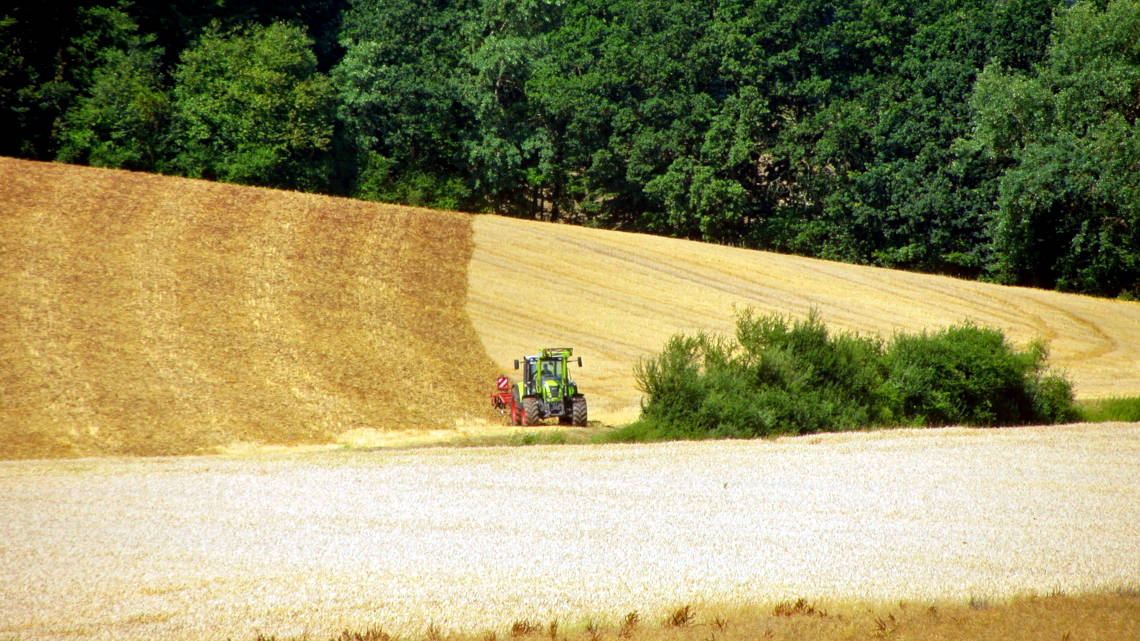EU agricultural policy reform under fire
Environmental and agricultural researchers have analyzed the EU Commission's reform proposals for the Common Agricultural Policy. They have identified significant deficits and presented alternatives.

From climate crisis to extinction of species - agriculture is significantly contributing to many ecological problems. However, it does not have to be this way, but is a consequence of agricultural practices. The European Union could exert great influence on these, since its agricultural subsidies have a steering effect. Around 40% of the European Union's land area - 174 million hectares - is used for agriculture. By its own account, the European Commission wants to tackle the sustainability problem with a reform of the Common Agricultural Policy (CAP). An international team of agricultural and environmental researchers has now analyzed the reform plans in the science journal "Science" and say they are "unlikely to improve environmental protection".
UN sustainability goals disregarded
The analysis involved German researchers from the German Centre for Integrative Biodiversity Research (iDiv), the Helmholtz Centre for Environmental Research (UFZ) and the University of Göttingen. They compared the plans with the UN goals for sustainable development (SDG), the previous CAP and the social debate on agriculture. For this purpose, the scientists evaluated around 450 publications in which the current CAP was analyzed and compared them with the reform plans. "Taking sustainability and the SDGs seriously requires a deep reflection on agricultural policy, its budgets and instruments, and developing good indicators for measuring success," stresses ecologist Guy Pe'er. "Beyond words, we found little of that." According to the new study, an appropriate agricultural policy could contribute to nine of the 17 sustainability objectives, but currently only contributes to two of them.
Land subsidies remain problematic
Furthermore, the Commission did not wish to change instruments which, according to the literature study, had proved to be inefficient, harmful to the climate and the environment and socially unfair. The direct payments from the so-called Pillar 1, for example, are still problematic. At around 40 billion euros, they account for around 70 percent of the CAP budget and are essentially allocated on the basis of the area farmed. The type of farming originally played no role and had not become more sustainable with the introduction of "greening" in 2010: The sustainability requirements had been politically softened and had proved to be largely ineffective. Even the planned readjustment does not contain any effective instruments for climate protection. "These compensatory payments, provisionally introduced in 1992 as an interim solution, are lacking a sound scientific justification," criticizes agricultural economist Sebastian Lakner of the University of Göttingen.
After all, climate protection - like environmental protection - should be the focus of Pillar 2. Their budget, however, already amounts to only one tenth of that of Pillar 1 and is to be further reduced according to the reform plans. The researchers call for the subsidies to be shifted in favour of Pillar 2 and for further measures to be supported that contribute to the UN's sustainability goals.
Citizens and farmers demand more environmental and climate protection
"The EU obviously lacks the will to meet public demand for sustainable agriculture and to implement the global environmental and development goals it had a share in adopting," Pe'er sums up. "Lobby interests have clearly outweighed both ample evidence and public interests." According to an EU survey, 92 percent of the citizens and 64 percent of farmers criticize the lack of environmental and climate protection in the CAP. Lakner therefore calls for a "genuine reform": "There is sufficient scientific evidence on what works and what doesn’t, especially with respect to the environment. It should be in the core interest of the EU Commission to use tax payers’ money more efficiently to support societal objectives such as the maintenance of biodiversity or in general sustainable agriculture".
The final negotiations on the new CAP between the EU Commission, the European Council and the EU Parliament will begin in autumn.
bl/um


